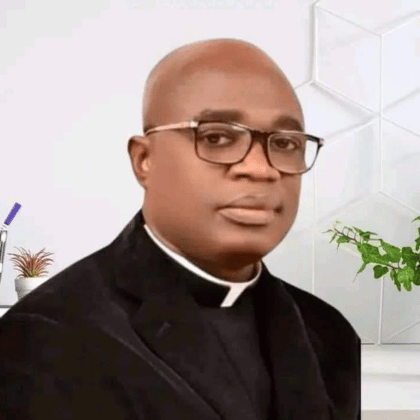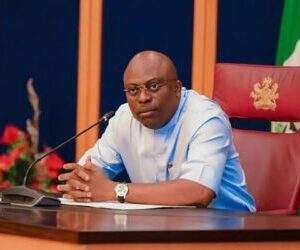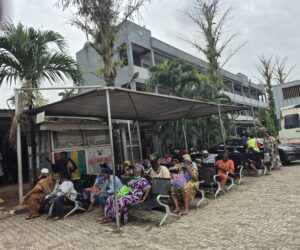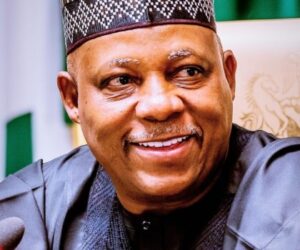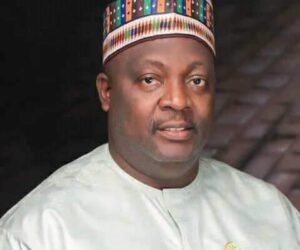As Nigeria marked its 65th independence anniversary, Rev. Fr. Dr. Hyacinth Alia, the Governor of Benue state, joined voices with the presidency to affirm that Nigeria remains a united nation—diverse in tribes and regions, yet bound together by an unyielding spirit of oneness.
Speaking during the October 1 celebration, Governor Alia described the anniversary as a “unique call for reflection and evaluation,” urging Nigerians to revisit the visionary ideals of the nation’s founding fathers. He praised their sacrifices—not just in fighting for freedom from colonial rule—but in laying the cornerstone of unity and peace that continues to hold the country together.
Governor Alia, a strong advocate for education, emphasised that the most lasting empowerment the founding fathers bequeathed was access to education. Since assuming office, he has made education a core priority, renovating 354 public schools to improve learning environments across Benue State.
In an unprecedented move, the administration also employed over 9,000 qualified graduate teachers with strong educational backgrounds to raise teaching standards and bridge the student-teacher gap.
Governor Alia’s achievements in infrastructure have drawn national attention, placing Benue state prominently in the news for the right reasons. Under his leadership, the state has recorded historic firsts—most notably the construction of Benue’s first flyover bridges, which have greatly improved access and traffic flow between the capital city and neighbouring states.
These projects, along with extensive dualisation of major roads, have earned the support of the Federal Ministry of Works and Housing, leading to more collaborations in the upgrading of road infrastructure across the state.
Another landmark development is the revitalisation of the Otobi Water Works, which now supplies clean drinking water to residents of Otukpo, Otobi, and surrounding communities—a long-awaited milestone in the state’s water access efforts.
Staying true to Benue’s identity as the Food Basket of the Nation, Governor Alia has placed agriculture at the heart of the state’s economic revival. He flagged off the 2025 cropping season with a large-scale distribution of subsidised farm inputs to thousands of farmers, aimed at boosting productivity and promoting agricultural exports.
The governor is also working to industrialise Benue’s agricultural output through the establishment of key industries such as the Benue Fruits Factory and the revitalised Food Basket Breweries—moves that are already attracting private investors and generating jobs for youth and rural development.
In a deliberate push toward inclusive development, Governor Alia has rolled out numerous skills training and entrepreneurship programs, benefiting over 10,000 individuals, including more than 40,000 civil servants. These programs aim to promote self-sufficiency, reduce unemployment, and equip the workforce for a diversified economy.
The administration has also expanded capacity-building initiatives to ensure that women and youths—who are often most affected by poverty—are not left behind in the development.
On healthcare, Governor Alia reiterated his belief that “health is wealth.” He pledged to continue investing in healthcare infrastructure, essential medications, and improved access to services, especially in rural and underserved areas.
On security, he acknowledged the efforts of Nigeria’s armed forces and security agencies, commending their dedication in restoring peace to troubled parts of Benue state. He assured residents that his government remains committed to securing lives, farmlands, and communities, stating:
“With courage, intelligence, and collaboration, we will restore peace to every inch of our land.”
As part of broader reforms, Governor Alia has also emphasised cutting government expenditure, ensuring that state resources are prudently managed to meet pressing developmental needs. His emphasis on transparency and sincerity of purpose has won the support of many, including partners at the federal level.
Concluding his Independence Day speech, Governor Alia reminded Nigerians that despite challenges, the country’s strength lies in its diversity and resilience. Echoing the spirit of the national anthem, he said:
“My dear people, let us renew our commitment to unity—one people, one purpose, one destiny. In the face of hardship, let us keep hope alive. In our diversity, let us find strength; in our challenges, let us find opportunity.”
His words echoed far beyond the ceremonial grounds—resonating with the millions of Nigerians who continue to believe in the dream of a united, progressive, and prosperous nation.
As Benue continues to rise under his leadership, Governor Hyacinth Alia has not only redefined governance in the state but has become a symbol of visionary leadership and national unity in a time when Nigeria needs it most.

